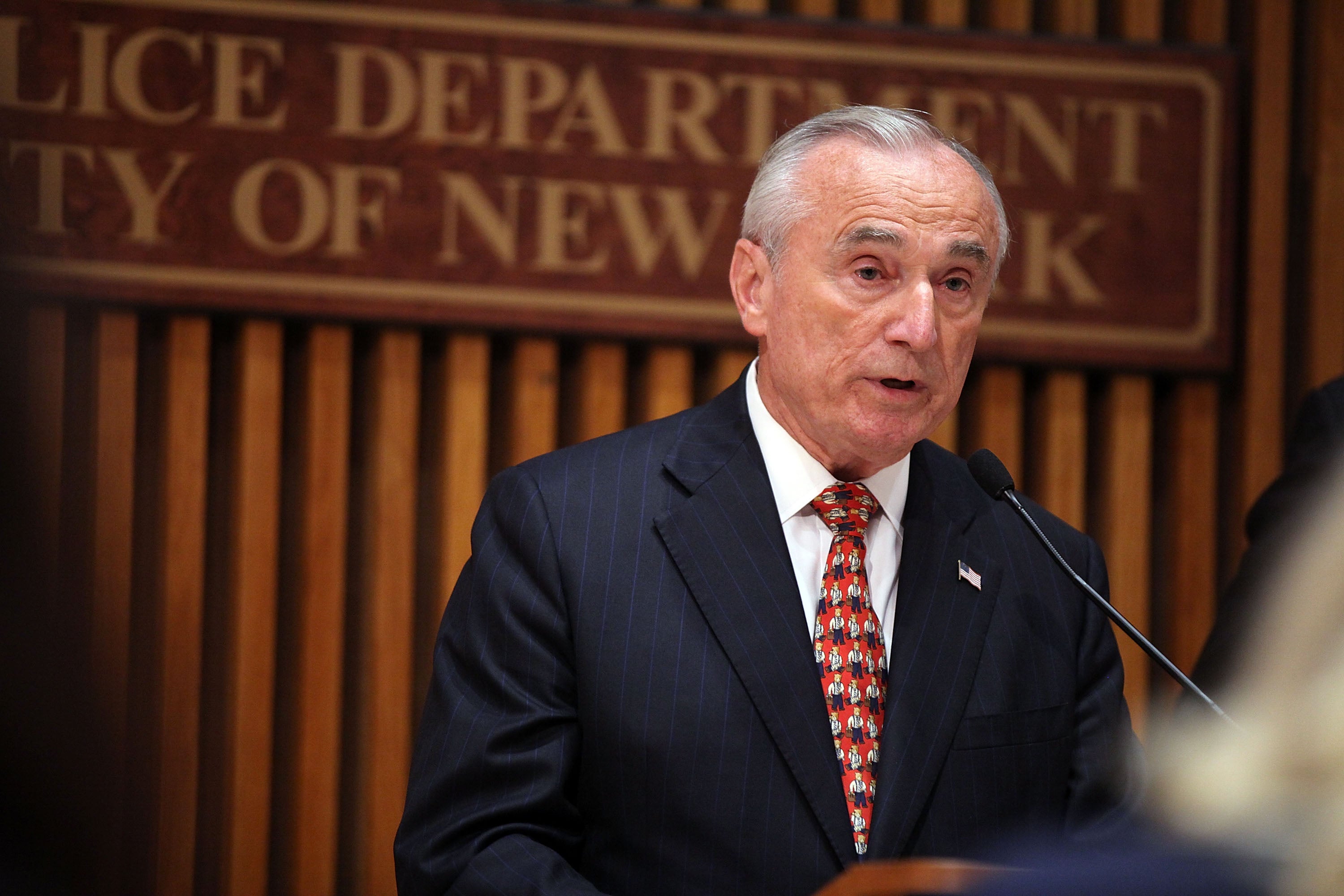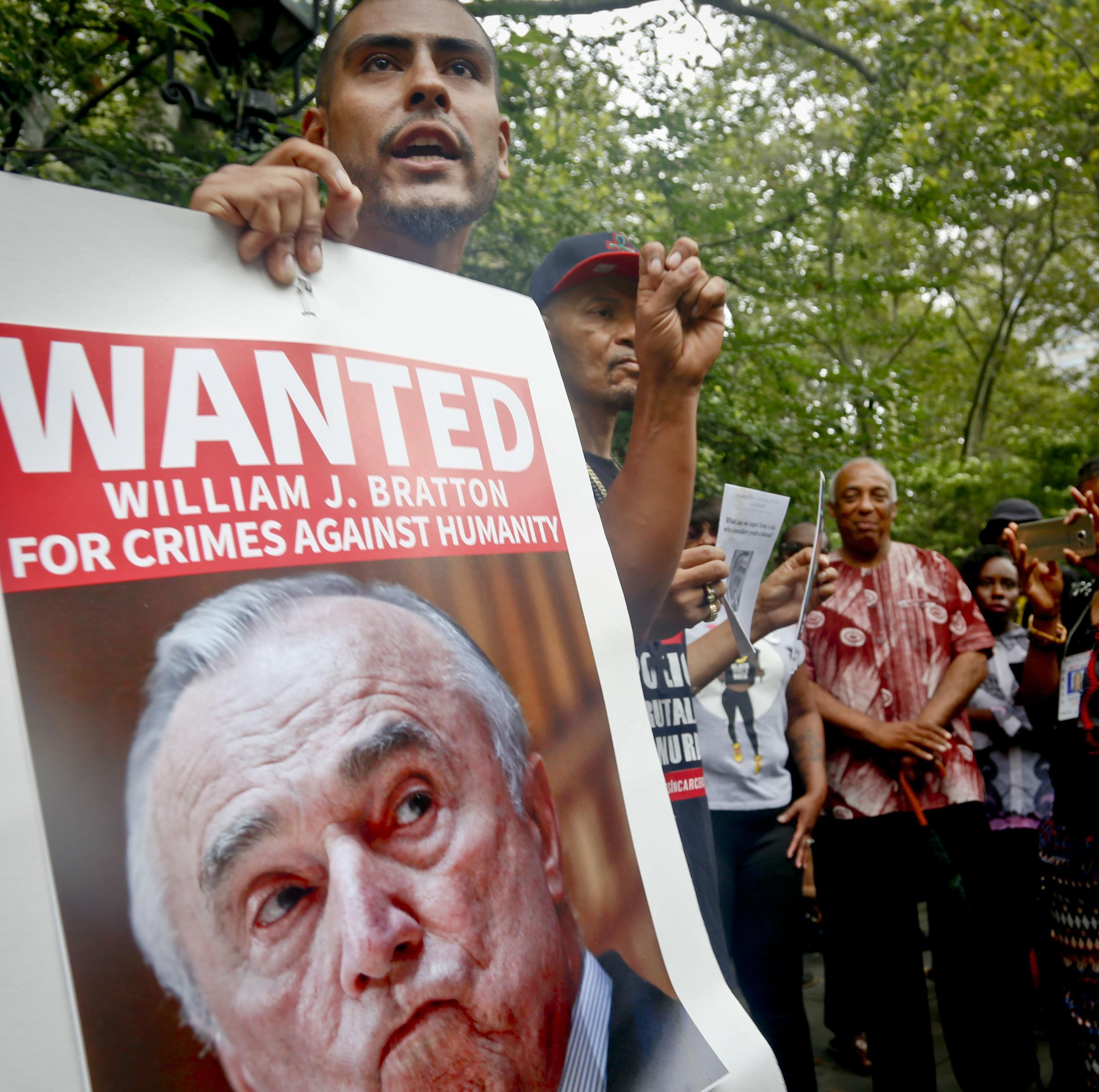'Broken windows' police pioneer Bill Bratton steps down as NYPD commissioner to take job in private sector
Mr Bratton had frequently been accused of heavy-handed tactics during controversial second term and was facing increasing pressure from Black Lives Matter protesters

Your support helps us to tell the story
From reproductive rights to climate change to Big Tech, The Independent is on the ground when the story is developing. Whether it's investigating the financials of Elon Musk's pro-Trump PAC or producing our latest documentary, 'The A Word', which shines a light on the American women fighting for reproductive rights, we know how important it is to parse out the facts from the messaging.
At such a critical moment in US history, we need reporters on the ground. Your donation allows us to keep sending journalists to speak to both sides of the story.
The Independent is trusted by Americans across the entire political spectrum. And unlike many other quality news outlets, we choose not to lock Americans out of our reporting and analysis with paywalls. We believe quality journalism should be available to everyone, paid for by those who can afford it.
Your support makes all the difference.The stepping down of Bill Bratton, one of the most controversial and divisive police commissioners in the history of New York City, has been welcomed by campaigners who criticised his zero-tolerance polices and heavy-handed policing.
The commissioner of the largest police department in America will leave next month to take up a job in the private sector. The news follows mounting pressure from Black Lives Matter, which occupied a park beside City Hall this week, demanding that Mr Bratton be fired.
Amid speculation that the relationship between commissioner Bill Bratton and New York City mayor Bill de Blasio had broken down, the mayor insisted he would miss seeing the commissioner every day and thanked him for changing a culture of violence and crime, making New York one of the safest cities in the country.
“Now you're going into the private sector maybe you can buy me dinner once in a while, now you can afford to,” joked de Blasio at a press conference, slapping the 68-year-old on the shoulder.
Both men insisted the departure was nothing to do with the current investigation of several high-ranking officers for corruption.
"I'm leaving with reluctance," said Mr Bratton. "But I've been offered an opportunity that is incredibly exciting for me and my wife. It's the right time to leave."
The last few years have proved difficult for Mr Bratton amid heightened racial tensions and the gathering momentum of Black Lives Matter.
His tenure as commissioner has included the death of unarmed black man Eric Garner in 2014 and increasing calls against his heavy-handed methods, known as “broken windows policing”.
After starting his career with community policing in Boston in the 1970s, he worked his way up to become the highest police officer in New York.
Mr Bratton said to reporters on Tuesday, in a heavy Boston accent, that “police lives matter”.
“Never in the history of this city has that been more important,” he said.
“When you see a policeman, remember he is your friend,” he added later, making no mention of women on the force. “That is my vision that I've had for the last 35 years.”
He said the issue of race relations is a crisis across the country, and is not unique to New York.
Mr de Blasio insisted that the “extraordinary friendship and deep connection” with Mr Bratton will continue. The commissioner told the mayor on 8 July that he would be leaving.
“We remember what the city used to be like, many of us have lived through it,” said the mayor at a press conference on Tuesday. “2000 murders a year. Disorder was common. All of the life offenses almost went without notice. Bratton changed that.”
NYPD commissioner Bill Bratton will be replaced by chief of department Jimmy O'Neill, who promised to continue the department's “philosophy of neighbourhood policing”.

The news come just days after Mr Bratton said in an interview with the New York Times that he would not serve as the city’s top police officer after 2017.
“I have the luxury of going when I want to go,” Mr Bratton said. “I’m not going to be here in the second term. That’s the reality of it.”
Mr Bratton has also overseen numerous cases of NYPD officers using their weapons in dubious situations, including when black man Akai Gurley was shot dead in November 2014 as a bullet ricocheted in the stairwell of a Brooklyn housing project. The prosecutor in the case recommended no prison time for the police officer, Peter Liang, who killed him.
Josmar Trujillo, an activist from New Yorkers Against Bratton, said he was delighted by the reports.
“For years he's developed policies that have targeted poor people, Latinos, Blacks, street vendors, street performers... all the vulnerable people in society,” he said, adding that his approach had been exported around the world.
“His contribution to the problem has been unprecedented.
“This campaign doesn't end now but once he is held to account,” he said.
His replacement, Mr O'Neill, who started patrolling the New York subways in 1983, is one of the “architects” of neigbourhood policing and the “perfect” replacement, said de Blasio.
Mr O'Neill said on Tuesday that he “loves” his uniform and what it stands for.
“To lead lives of significance, make this a better city, and provide a quality of life that we can all be proud of,” he said.
Join our commenting forum
Join thought-provoking conversations, follow other Independent readers and see their replies
Comments